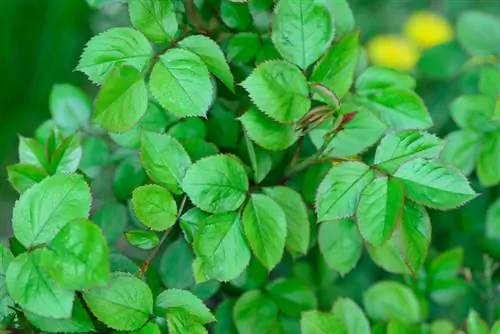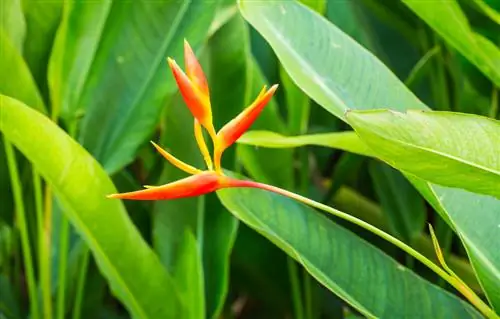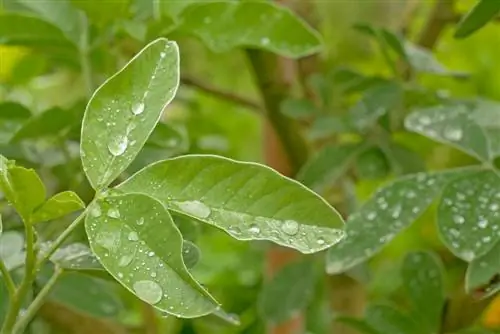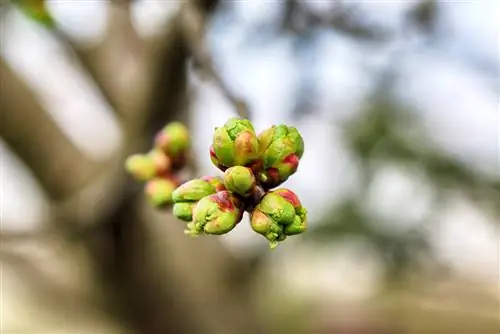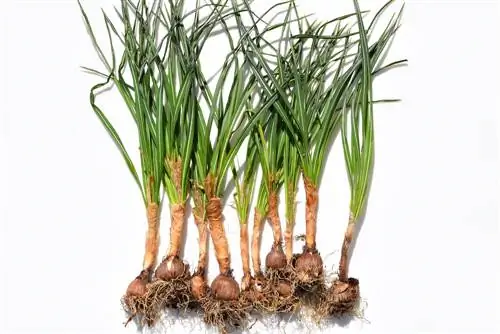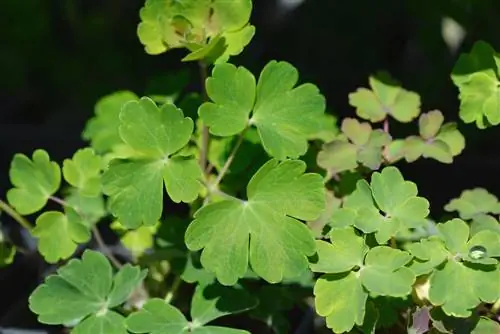- Author admin leonars@hobbygardeners.com.
- Public 2023-12-16 16:46.
- Last modified 2025-01-23 11:20.
Roses are cultivated primarily for their beautiful flowers. It's even more annoying when the rose bush doesn't bloom.
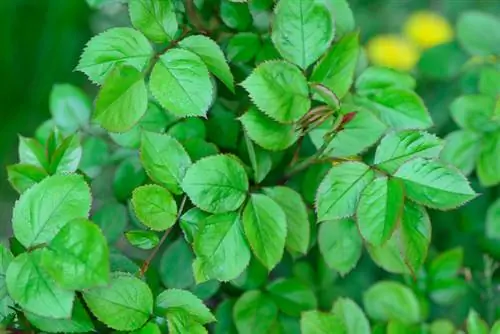
Why isn't my rose blooming?
If a rose does not bloom, the cause can be an unsuitable location, incorrect care, weather that is too humid, soil tired of roses, incorrect pruning or pests or fungal infestation. For lush flowering, site conditions, water supply, fertilization and pruning must be optimally tailored to the rose type.
Unsuitable location / too wet weather
A common reason for the lack of flowering is an incorrect location. Roses only bloom profusely when they feel comfortable - and they do this especially in a sunny to partially shaded, not too hot, but airy spot. The soil should be nutrient-rich, permeable and neither too firm nor too sandy. Before planting, it is an advantage to dig the soil deeply and loosen it properly. The “Queen of Flowers” also needs a lot of space and does not like to compete with other plants. That's why you should definitely adhere to the recommended planting distances! In addition to these reasons, soil that is too moist (for example due to poor drainage) or damp, rainy weather for weeks can also be the cause.
Roses must not follow roses
Under no circumstances should you plant roses in a location where a rose plant has already existed. This rose will most likely grow very poorly and/or not bloom. The specific reason for this “rose fatigue” in the soil has not yet been researched, but you can counteract it by replacing the soil.
Incorrect care or cut
Incorrect care can also cause the rose not to bloom. Roses need a lot of water - even if they don't necessarily like it wet - and, as they are heavy feeders, they also need regular fertilization. You should water your roses heavily, especially shortly before flowering, so that the flower buds do not dry out due to lack of water. When fertilizing, make sure not to use fertilizer that is too high in nitrogen - a lot of nitrogen encourages the plant to grow vigorously, but prevents flowering. You can also fall into many a trap when it comes to pruning, because many an inexperienced gardener has accidentally cut away the flowering shoots of roses that bloom on perennial shoots in the spring.
Pests or fungal infestation
Especially if the rose has numerous buds that do not want to open but instead seem to be rotting, there is often either an infection with various possible fungi or a pest infestation.
Tip
Before you start looking for the cause and possibly move your rose completely unnecessarily, you should find out the specific type or variety of your rose. Some roses do not bloom on young shoots, but only on perennial wood. If you have got such a rose, you only need to be patient for two to three years and your rose will also bloom.

